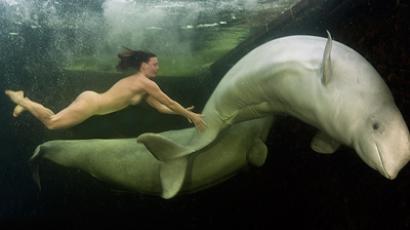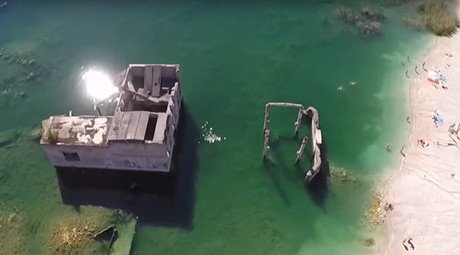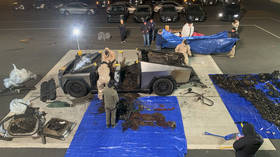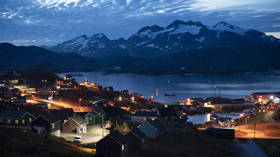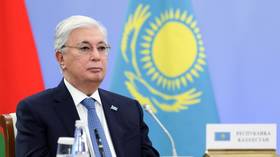On single breath: Freediving & its legends in new RT documentary
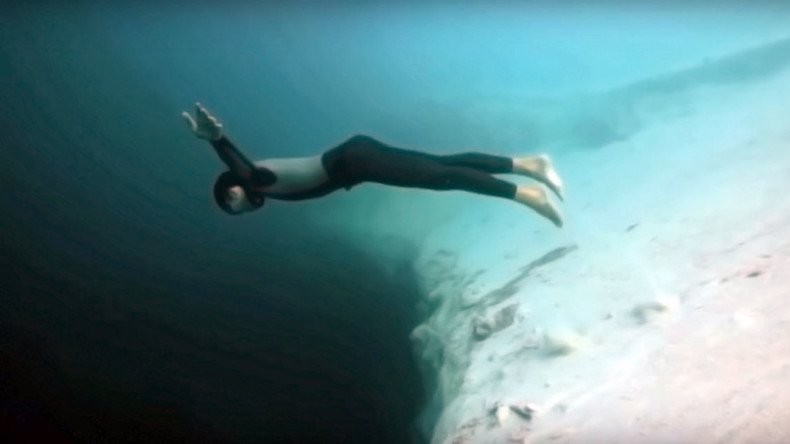
No scuba gear, just a single gulp of air. Freediving will bring you closer to your maker than almost any other sport. RT Doc’s ‘Dying to Dive’ takes the viewer behind the scenes to explore the highs and lows of the discipline and its immortal champions.
The pressure increases with every meter. Lungs are subjected to as much as 10 times more compression, and the heartbeat slows to a crawl. For some pro athletes, their bodies change forever, even on land. There is no place for adrenaline in freediving. The pacing must be immaculate, or the diver risks serious injury, even death.
Some dive for pleasure. Others take it up a few notches. Russian freediving legend Natalia Molchanova was one such person. In a world of young and buff athletes, she rose to fame at the aged of 40, after a divorce, and started life anew.
She was among the top Russian free divers around, making her one of the best worldwide. The tradition has a long history in the country and monofin diving was created in Russia. It is currently the most popular and respected of the three disciplines in free diving.
‘The queen of freediving’, she once held her breath for nine minutes while descending to a skull-crushing depth of 127 meters – the height of a 47-story building. Among women she’s second to none.
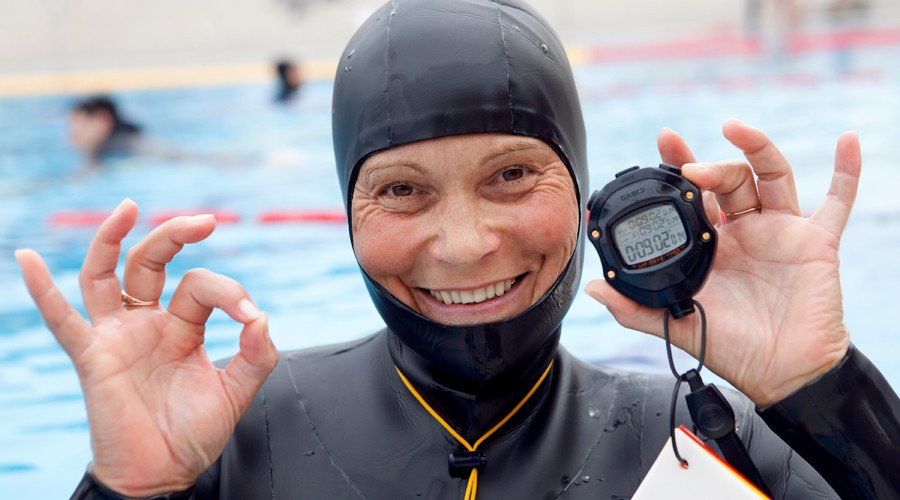
The school Natalia founded looks more like a meditation shack on the beach, where divers sit in the lotus pose doing breathing exercises to slow down their heart rates and extend their lungs’ breathing capacity. Her one rule in freediving was ‘don’t push yourself.’ Unlike other sports, one must be relaxed throughout – it’s the only factor that will determine how deep you dive, and for how long.
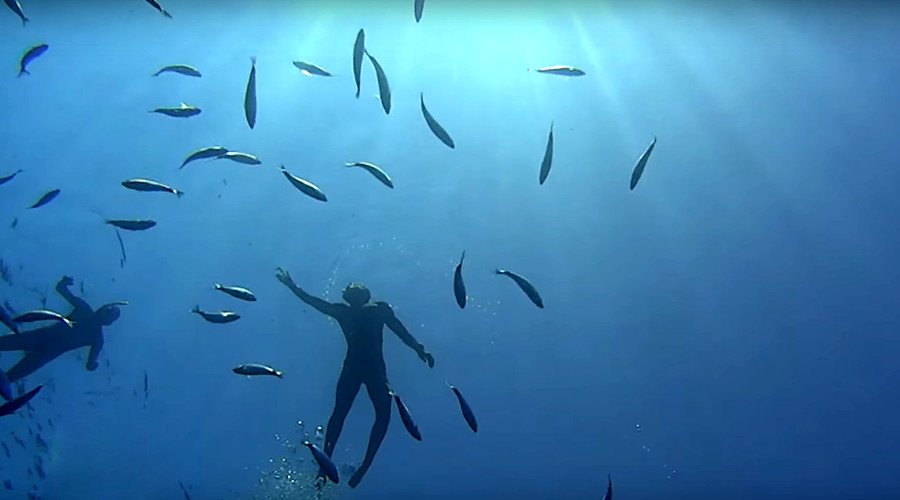
The toughest part of the descent is the first 20 meters. The water pushes the diver back up. After that point, the body can descend freely. At 50 meters, the water starts to pull the diver in at approximately 1 m/s. Such depths squeeze the thoracic cage and nearly arrest the heart, slowing it down to 30bpm, sometimes less.
“For me, this is no sport. The philosophical aspects definitely prevail over the others,” she said in an interview not too long before her untimely death. “You reconsider your values. Breathing in as you come to the surface, you understand that there is value in life itself.
You understand that it’s pointless to be at war with yourself. Accept yourself and you’ll be in harmony and accept the world as it is.”
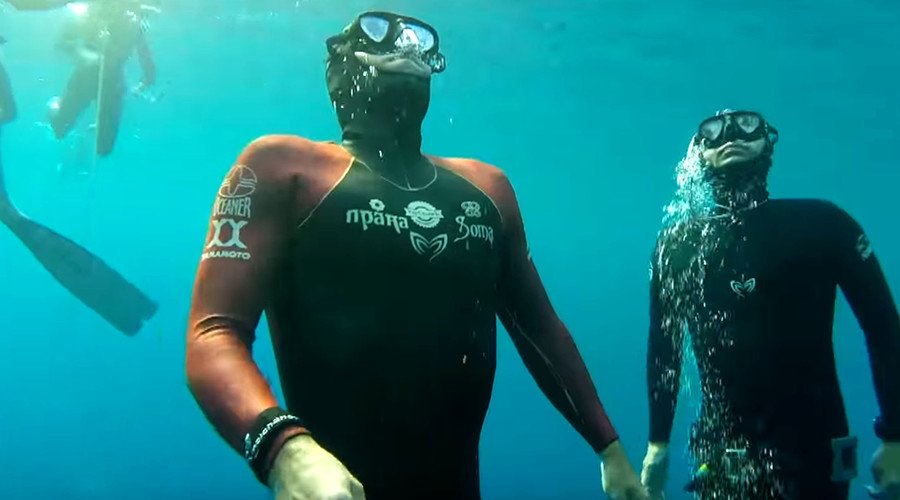
Molchanova died doing what she loved best. On August 2 in 2015, she vanished underwater while on a dive with friends. She was 53. Over a 13-year period she had broken 42 world records, won 23 World Championship medals, and showed no signs of stopping.
She was to take part in the upcoming worldwide championship, along with her son and freediving student Alexey. While Molchanova started freediving professionally late in life, she had been a prolific swimmer for most of it. She had been training her son since the age of 3, the same year he swam a record 500 meters on his back.
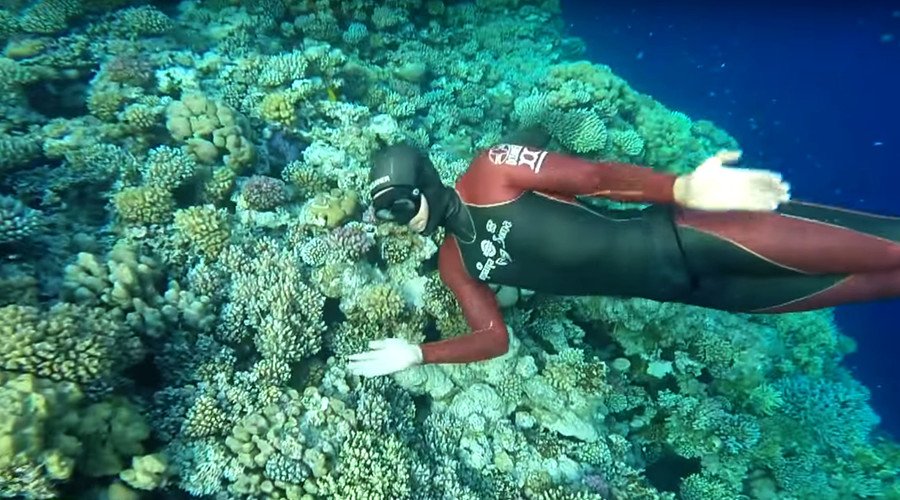
Alexey holds the current world record for monofin freediving – 128 meters. At a recent championship he was to face Frenchman Guillaume Nery, who trailed closely behind with 125 meters. Nery is the man you might remember from the spectacular underwater walking videos on YouTube. Those were filmed by his girlfriend and catapulted the French free diver to fame.
“Every time you go down and you come up at the surface, it’s like a rebirth,” he says.
Nery had tried to beat Molchanov’s record by achieving 129 meters, but blacked out only 10 meters from the surface while coming back up. This was the result of a mistake by the judges, who had set the guide rope at 139 meters – instead of 129. At such depths, years of training are needed to go even one extra meter.
“I was shocked,” he remembers. “It could have been much worse, I’m very lucky I’m fine. I remember I had the feeling that someone played with my life. I have a family and everything, and doing such a big mistake – it’s unacceptable.”
The judges have since been suspended.
Nery now has a fractured lung, and is recovering before even remotely thinking about any sort of competing. He remembers feeling intensely fearful he would never see his small daughter again. Being both a champion and a family man leads to “very mixed and confused feelings,” he says.
Molchanov and Nery are good friends. The feeling you get from standing on the deck with the two athletes is not one of rivalry, but camaraderie. With such dangers involved, the competition becomes more about staying alive than beating the opponent. Nery believes Molchanov’s dives are a “beautiful tribute to his mother… there is something deep inside, and I’m sure she’s with him.”
Guillaume remembers meeting Natalia in 2005 in his hometown of Nice at a championship, and immediately being enthralled by her performance. She swiftly became “a model of calmness and control, of success” for him and others who had never heard of her before.
She broke six more world records that year alone.
“Natalya Molchanova and her son are very unusual,” President of the International Association for Development of APNEA, Carla Hanson, says. “We have no one else in our sport who was a mother and son team, and certainly no one else who can get records together in one championship.”
The 'golden mother and son' in their gold suits once broke two separate records within an hour of each other – the time Alexey achieved 129 meters. Natalya had then gone down to 127 meters on a sled, resurfacing by herself with a monofin.
For Guillaume, the accident could have been a sign. He looks forward to a life without freediving, where he can dedicate himself to his wife and daughter. He appears very happy.
For Alexey, however, his mother’s passing served to liberate him even further than previously. He shows no sign of slowing down. “I have a feeling she’s watching me, helping me when I dive… there is this feeling that she’s still there and we’re connected.”
